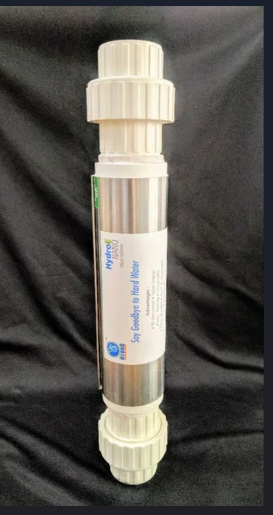A water softener system is an essential household appliance for those dealing with hard water, which is high in minerals such as calcium and magnesium. Hard water can cause various problems, including scale buildup in pipes and appliances, reduced efficiency of soaps and detergents, and unsightly stains on fixtures and laundry. Installing a water softener can alleviate these issues, making your water softer and more manageable.
How Water Softeners Work
Water softeners operate on the principle of ion exchange. They typically consist of a mineral tank filled with resin beads, which are negatively charged. When hard water passes through this tank, the positively charged calcium and magnesium ions in the water are attracted to the resin beads and exchanged with sodium or potassium ions, which are less likely to form scale. The result is softened water with reduced mineral content.
Types of Water Softeners
-
Salt-Based Water Softeners: These are the most common type and use salt to regenerate the resin beads. During the regeneration cycle, the system flushes the resin beads with a brine solution, replacing the calcium and magnesium ions with sodium ions. This cycle is usually automated and occurs periodically.
-
Salt-Free Water Softeners: Instead of removing the minerals, these systems alter the structure of the minerals so they do not form scale. They are less effective for heavy scaling issues but require less maintenance and do not use salt.
-
Dual-Tank Systems: These systems have two resin tanks, allowing one to be in use while the other is regenerating. This provides a continuous supply of softened water without interruption.
-
Magnetic or Electronic Softeners: These systems use electromagnetic fields to alter the behavior of minerals in the water, preventing them from sticking to surfaces. They are often marketed as a low-maintenance, chemical-free option, but their effectiveness can vary.
Benefits of Water Softeners
-
Prevents Scale Build-Up: Softened water reduces the formation of scale in pipes and appliances, extending their lifespan and improving efficiency.
-
Improves Soap Efficiency: Soft water allows soaps and detergents to lather better and clean more effectively, reducing the amount needed for cleaning tasks.
-
Protects Plumbing and Appliances: By reducing scale buildup, water softeners help prevent clogs and damage to pipes, water heaters, and other appliances.
-
Enhances Water Quality: Soft water can improve the taste and appearance of drinking water and make bathing more enjoyable by leaving skin and hair feeling softer.
Installation and Maintenance
Installing a water softener requires connecting it to your home's water supply, which might involve some plumbing work. It's usually best to have a professional handle the installation to ensure proper setup and integration with your existing systems.
Maintenance involves periodically refilling the salt reservoir (for salt-based systems) and cleaning the system to prevent bacterial growth. Regular checks and servicing are necessary to keep the system functioning optimally.
Considerations
Before purchasing a water softener, it's important to test your water to determine the level of hardness and choose a system that matches your needs. Factors such as water usage, the size of your household, and the existing plumbing infrastructure can influence the type and size of the water softener you require.
In summary, a water softener system is a valuable investment for improving water quality in homes with hard water issues. By selecting the right system and maintaining it properly, you can enjoy the benefits of softened water, including better appliance performance, reduced maintenance, and improved overall water quality.
